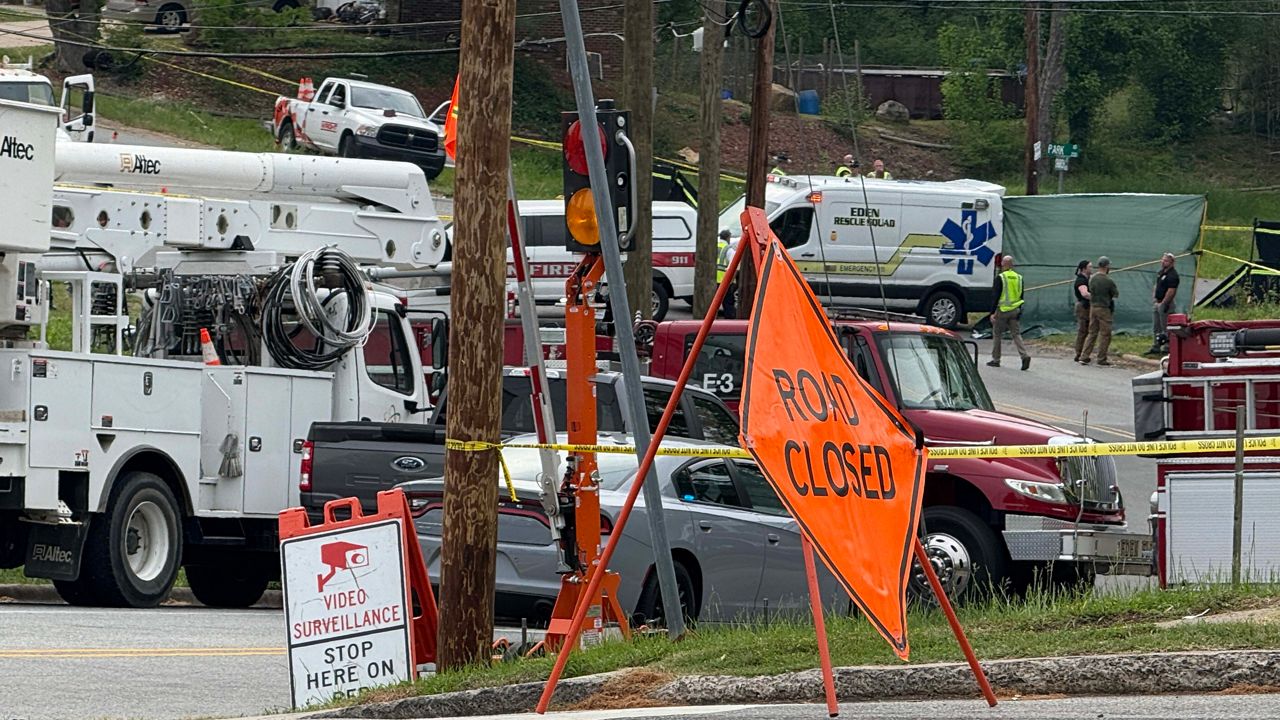CHARLOTTE, N.C. — The American Dream can at times feel like a nightmare for families who are concerned about the presence of corporate landlords in their neighborhoods.
Corporate investors are buying up single-family homes with the purpose of renting them out.
Over 11,000 single-family homes were owned by large corporations countywide in 2021, according to the UNC Charlotte Urban Institute.
Although some people take no issue with corporate landlords, a recent report found many North Carolina residents feel differently.
In 2023, The Lee Institute led a community engagement project to hear feedback from Mecklenburg County residents about corporate landlords, which they define as a corporation or group of investors owning 100 or more single-family homes.
The report, also prepared by the UNC Charlotte Urban Institute, found 75% of respondents said they felt a negative impact in their communities due to corporate landlords.
The concerns raised included economic mobility, housing affordability, safety and no connection to the community.
Gina Esquivel is the director of The Lee Institute.
Esquivel said when they launched this community engagement project, they didn’t expect to find only negative feedback. But she says the findings showed an overwhelming number of people have concerns about corporate ownership.
“One of the things we also found through the research is aging in place,” Esquivel said. “You have individuals who have been in place [at their homes] for a long time and are now having to revisit and ask if this is the place I want to stay.”
Esquivel’s team recently presented their research to the Mecklenburg County Board of Commissioners, so leaders can further assess how governments can intervene in this area.
“One of the biggest things we suggested to them as The Lee Institute is to have really good information out there for every resident,” Esquivel said. “So every resident can be able to look at their neighborhood and say this is what is happening in my neighborhood, and then collectively really look at what are the actions we can take. This is an issue I would not suggest someone take on their own. Understand what’s happening in your neighborhood. Don’t make assumptions. Investigate and have some really good data about what’s going on and then collectively as a group come up with the best ways [to address it].”
The Lee Institute’s report revealed 11% of residents see both positive and negative impact from corporate ownership.
One respondent said corporate landlords are helping to stabilize home values in neighborhoods that are deteriorating, while another said corporate landlords created opportunities for homeowners through a quicker sale process.
“I mean, it’s an open market. There are going to be benefits to this type of transactions. However, as a community, you have to begin to weigh in what are the pros and cons, whether these benefits you’re gaining are greater than the negative impact,” Esquivel said.
Some residents say they can feel the corporate landlords’ presence near their homes.
Marcia Tolliver used to serve as the Charlotte Housing Authority resident commissioner.
Tolliver is now retired and lives in a neighborhood she’s called home for almost 11 years.
“This is an older community, older subdivision,” Tolliver said. “It started back in the ‘80s. it was a peaceful, quiet neighborhood. My husband and I fell in love with it.”
But over time, Tolliver says she’s seen a change in the neighborhood, which coincides with a rise of corporate landlords.
“In 2015, I noticed a lot of corporate developers started moving in around in this area big time,” Tolliver said. “We started getting postcards with pictures of your home asking you if you wanted to sell.”
Tolliver says there are houses rented by a corporation within walking distance from her home.
Tolliver says she’s learned some of the families renting homes from corporate landlords were paying more in rent than she does for her mortgage.
“There should be some accountability,” Tolliver said. “I’m looking at how [the corporate landlords] are benefiting.”
Tolliver says corporations renting homes have resulted in new people frequently coming in and out of the neighborhood.
As a result, Tolliver and her husband installed a security system to monitor what’s going on near their home.
“It has taught me to be more observant, that’s what its taught me to do,” Tolliver said. “It’s good to know your surroundings.”
Tolliver’s neighborhood does not have a homeowners association, which can limit a corporate landlord’s reach.
Tolliver is in the process of launching a neighborhood watch to help safeguard the community she loves.
“We’ve had crime in the area,” Tolliver said. “Everybody [I’ve talked with] is in agreement with a neighborhood watch. I was surprised by the support I got so it has inspired me more.”










